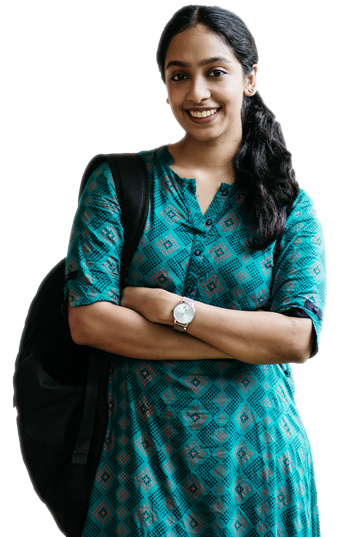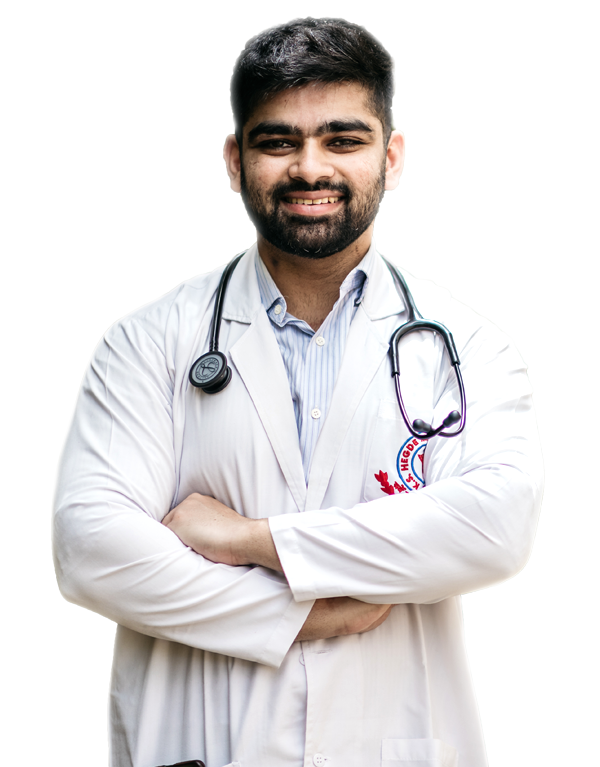
Eligibility
Pass in BDS from a recognized Dental College with permanent registration of any State Dental Council. NEET-MDS qualification is a pre-requisite for admission to MDS both under Management & NRI categories.
Admission Procedure
In addition to the basic eligibility criteria mentioned above, students seeking admission to MDS will be required to qualify in the National Eligibility cum Entrance Test, NEET-MDS which will be conducted by the National Board of Examinations (NBE) generally in December/January each year. The responsibility of NBE is limited to the conduct of NEET-MDS, declaration of the result and providing the NEET-MDS Ranks to DGHS / MCC for counselling 100% seats in Deemed Universities.
Application form for NEET-MDS can be submitted online through the website www.nbe.edu.in on notification. Students are advised to carefully read the Information Bulletin and keep the correct details ready, before submission of the form.
DGHS has entrusted the Counselling and Allotment of seats to the Medical Counselling Committee (MCC). Hence, after announcement of results, students are required to register on www.mcc.nic.in - PG Medical Counselling - Deemed/Central Universities and lock their choice of colleges.
Admission to both Management and NRI category seats in MDS is based on inter-se merit in NEET-MDS.
Candidates interested in taking admission under NRI category, will be required to forward the following NRI documents to the email ID provided by the Medical Counselling Committee (MCC) a few days prior to the commencement of registration:
- Affidavit of the person who is NRI and the sponsor
- Documents claiming that the sponsor is an NRI (Passport, Visa of the sponsor)
- Relationship of NRI with the candidate as per the court orders of The Hon’ble Supreme Court of India in case W.P.(c) No. 689/2017-Consortium of Deemed Universities in Karnataka (CODEUNIK) & Ans. Vs Union of India & Ors.
- Affidavit from the sponsor that he/ she will sponsor the entire course fee of the candidate
- Embassy Certificate of the Sponsor
- NEET score card
The fee structure of MDS (Management & NRI) is made available on the homepage of our website www.nitte.edu.in under Course Fee.
Documents required for admission to MDS (Original + 3 attested copies)
- Admit card issued by NBE
- Result/rank letter issued by NBE
- NEET-MDS allotment letter & Score card
- SSLC or equivalent marks card or birth certificate
- BDS Degree marks cards of all years
- Internship completion certificate
- Provisional/BDS Degree certificate
- Dental Council Registration certificate
- Transfer certificate
- Conduct certificate
- Migration certificate
- Physically handicapped certificate issued by authorized medical boards (if applicable)
- Physical fitness & Blood group certificate
- PAN card copy of the parent and student
- Aadhaar card copy of the student
- Photographs: Recent colour photo with white background, of resolution 300-600 dpi & size 35 mm x 45 mm (P.P size 5 Nos.) & size 20 mm x 25 mm (Stamp size 5 Nos.)
- Valid foreign passport and valid visa for the period of study
- Valid Residential Permit in India
- AIDS-free certificate
Additional documents for NRI admission
The originals of the documents sent to DGHS / MCC supporting NRI status should be submitted.
Additional documents for foreign nationals
For any information regarding the admissions,mail us at: info@nitte.edu.in

Program Outcomes
At the end of the program, graduates will be able to...
- PO1 : Apply the Knowledge of basic medical sciences relevant to the practice of Orthodontics.
- PO2 : Diagnose the abnormal growth and development patterns of Dento-facial skeletal and soft tissue structures along with their etiology and pathophysiology.
- PO3 : Discuss the dynamic interrelationship and reactions of biological process and mechanical forces acting in and around the stomatognathic system.
- PO4 : Demonstrate the in-depth Knowledge of theories and types of tooth movement, methods of controlling the untoward effects and mechanical aspects of Orthodontic tooth movement.
- PO5 : Recognize the etiological factors for the development of malocclusion and be able to classify the various types of malocclusions and related disorders affecting the craniofacial region.
- PO6 : Display the effective use of appropriate diagnostic aids in Clinical Orthodontics.
- PO7 : Employ critical thinking and understanding of the principles of clinical management of various types of moderate to complex Dento-facial disorders requiring Orthodontic treatment.
- PO8 : Develop skills for systematic preparation and maintenance of case records in both manual and digital forms.
- PO9 : Demonstrate the skills for the diagnosis and develop a treatment plan for all types of malocclusions.
- PO10: Demonstrate the application of recent advances in biomaterials, techniques and Technology.
- PO11: Design, fabricate Orthodontic appliances and clinically carry out treatment including preventive, interceptive and corrective procedures for all types of malocclusions.
- PO12: Display the skills for clinical management of medically compromised patients, adult patients and other cases requiring multi-disciplinary approach.
- PO13: Demonstrate the clinical skills required to prevent the relapse of the Orthodontic treatment outcomes.
- PO14: Demonstrate the ability to critically analyze and comment on structure and components of research papers.
- PO15: Plan, organize and conduct both clinical and basic research project with an aim of publishing /present the research outcome in various scientific forums.
- PO16: Demonstrate teaching skills and oral presentation skills with the use of Information & Communication Techniques.
- PO17: Demonstrate the techniques of disease prevention, public awareness, infection control and provision of health care in the community.
- PO18: Identify any newly encountered clinical situation and exhibit the ability to integrate the prior Knowledge to synthesize an appropriate treatment plan for effective management of these novel clinical conditions.
- PO19: Develop skills to practice independently in terms of academic, clinical and research contexts.
- PO20: Recognize and respect the patients’ rights, moral and ethical responsibilities, medico-legal aspects involved in the Oral health care delivery of the individual patient as well as the population.
- PO21: Accept the apprehension and psychological status of the patient and parents and demonstrate the techniques of motivation and instill positive behavior towards the treatment.
- PO22: Develop a high degree of credibility, integrity and professional honesty with social concern.
- PO23: Develop skills for effective communication with patients, explaining them the various treatment options, the complications involved with different types of Orthodontic procedures and be able to obtain written informed consent for the same.


